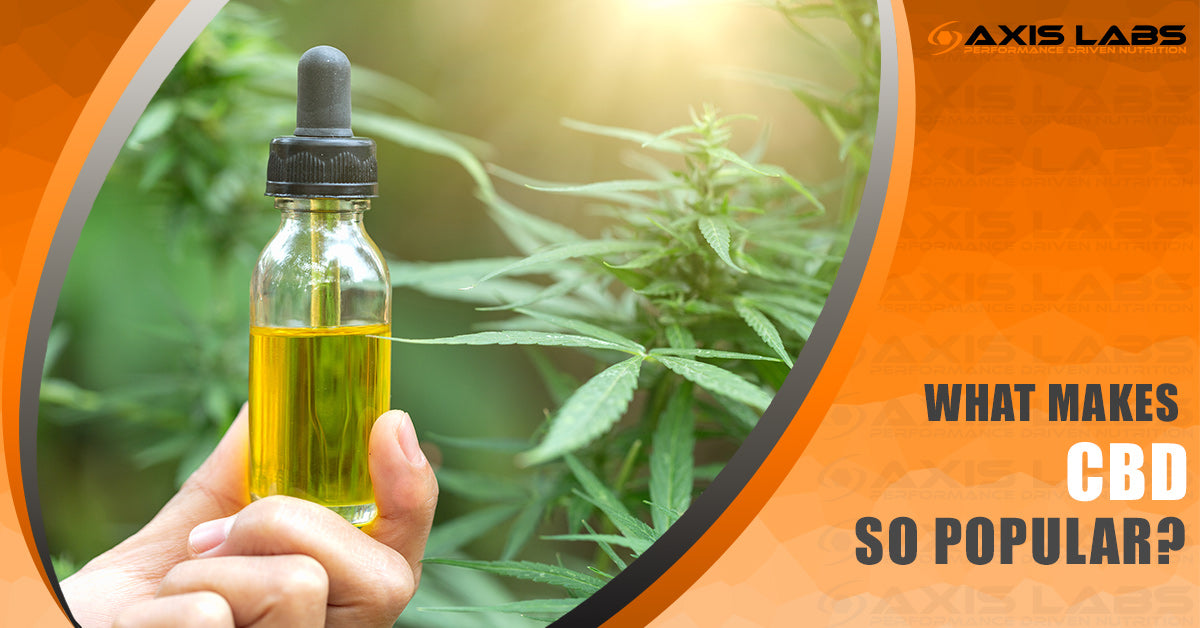Your Cart is Empty
FREE SHIPPING ON ORDERS +$49
FREE SHIPPING ON ORDERS +$49
What You Need to Know About Mislabeled CBD Products
5 min read

CBD is becoming more popular by the day. Now that more and more people are beginning to recognize the benefits it has to offer, it seems like everyone is giving it a try. To meet the increasing demand for CBD products, dozens of fly-by-night manufacturers have sprung up and have started offering less-than-quality CBD products. These sub-par products have earned a lot of attention — and not in a good way. In 2017, Penn Medicine at the University of Pennsylvania conducted a sprawling survey of CBD and hemp-based products. The results were shocking, to say the least. An estimated 70% of all CBD products are mislabeled in some way.
But what does this mean for you? As a purveyor of some of the purest and most potent lab-tested CBD products available, Axis Labs is here to outline this issue so you can make more informed purchasing decisions.
The Research into Quality CBD
There’s no denying that hemp and cannabidiol products are still an emerging field. Even the biggest and most well-known players are only a few years old. But in that time there has been a flurry of research into CBD and its effects. In response to the flood of products hitting the market recently, a few different research groups began examining whether CBD products like pills and tinctures were being labeled correctly.
The largest of these studies was undoubtedly the Penn Medicine report, but it was far from the only one. The Veterans Affairs office in San Diego, Americans for Safe Access, RTI International, John Hopkins, and Palo Alto University have all performed their own studies examining the same things.
In total, the studies would examine 84 hemp-based products and their advertised CBD concentrations. Ultimately, 26% contained less CBD than advertised, and 43% contained more. This means that many manufacturers are inconsistent in how they measure their concentrations and then advertise them. Interestingly, however, there were variations in the accuracy between products. For instance, 45% of CBD oils featured an accurate label, while only 12.5% of e-liquids for vapes were labeled correctly.
Understanding What These Studies Mean by “Mislabeled”
When these studies said that the products were “mislabeled,” it was more complicated than simply saying one product had CBD and another didn’t. Instead, the studies proposed two categories for mislabeled products: under and over-labeled products.
When a product is determined to be under-labeled, it means that the concentration of CBD in the product is higher than what’s advertised. Conversely, over-labeling means that the CBD concentration is lower than advertised. Troublingly, these studies found that only about a third of all of the CBD products tested had a concentration that was within 10% of what was advertised.
If it’s Not CBD, What is It?
While the discrepancies in CBD concentrations is concerning, even more concerning are other claims made on the packaging that may not be accurate. For instance, many CBD products are listed as having 0% THC concentration. Unfortunately, THC was more common in the CBD test products than is comfortable. THC was found in 21% of the products. Tetrahydrocannabinol is the psychoactive compound that gets some people “stoned,” and is a Schedule 1 drug at the federal level. This means that those who unknowingly purchase a hemp-based product with THC in it could face legal trouble.

As if the legal issues of THC in CBD products weren’t troubling enough, there are also health concerns. If the product is improperly labeled and it does contain THC, some users may unwittingly experience negative side effects as a result of ingesting the psychoactive compound. For parents who offer their children CBD as a way to help with seizures, the presence of THC can lead to distressing results for their children. In any case, CBD products are meant to help people, and the presence of THC or inaccurate concentrations may have a negative impact on the user’s health.
Why are Products Being Mislabeled?
Identifying which products are mislabeled is becoming easier, but figuring out why they’re being mislabeled in the first place is much harder. There is any number of factors that could lead to a mislabeled CBD product making it onto the market.
The availability of CBD and the complicated relationships it has with governments at the state and federal level plays a role. While CBD is legal for purchase in some states, it isn’t in others. Similarly, the DEA still considers it a Schedule 1 drug, despite the passage of critical legislature like the 2014 and 2018 Farm Bills.
Another issue is the expanding CBD market. As more and more companies bring products out, there is increased competition and tighter margins for success. Companies may cut corners in order to meet sales goals and quotas.
Finally, there’s the lack of clear government oversight and regulation of hemp-derived products like CBD. Researchers in the Penn Medicine study made the case that without clear FDA regulations, CBD will continue to be mislabeled. That’s because there are no clear ways to produce, test, and label CBD products in an accurate way.
How Axis Labs Tests for Accuracy
However, not all CBD manufacturers are producing mislabeled products. In lieu of government regulations, leading CBD brands like Axis Labs are choosing to test their own products for purity and potency. In our case, we have partnered with a hemp and CBD testing facility called Botanacor.
This lab works with all hemp-derived products and we submit a sample of every one of our products to their lab for testing. Their team starts by checking for the presence of THC in the product before measuring the potency of our CBD products by using an HPLC method paired with spectral analysis. To ensure that we’re offering the purest CBD available, our sample products are submitted for a solvent analysis to make sure that there are no byproducts from the extraction process. Finally, we request that our CBD products are run through a microbial contaminant test to check for undesirable things like yeasts and molds.
Why is Third-Party Lab Testing Important?
While third-party lab testing isn’t a requirement to bring a CBD product onto the market, it’s in the best interest of the manufacturer to do so. This ensures that their products can legitimately command the prices that they do and that they are safe for consumers to use. Indeed, the presence of a third-party testing label on CBD products actually serves as a selling point and it’s why we choose to share all of our lab test results right on our website.

Order Your Premium CBD Pills Today
If you don’t want to play the guessing game of which CBD pills and tinctures are labeled correctly, then the easiest step to take is to simply order all your CBD from Axis Labs. Derived from a high-quality industrial grown hemp, you can trust us to offer you the CBD pills, gummies, creams, and tinctures you need to enhance your lifestyle. Order your CBD today.
Also in Blog
Subscribe
Sign up to get the latest on sales, new releases and more …








